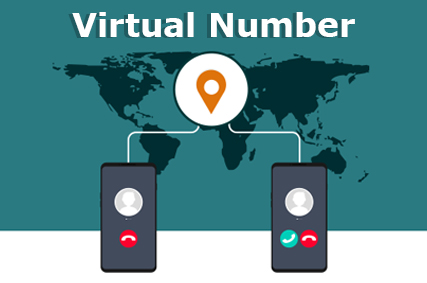Security Features of Modern Virtual Number Services
What Are Virtual Number Services?
Virtual number services provide a phone number that isn’t tied to a specific physical line or device. Instead, calls and messages made to the virtual number are forwarded to a user’s real number or handled by a cloud-based system. These services are commonly used for business communications, privacy protection, and global outreach.
Key Security Features of Virtual Number Services
1. Encryption Protocols
One of the most critical aspects of virtual number security is encryption. Modern virtual number services employ robust encryption protocols to secure communications. This means that calls and messages are encoded so that unauthorized individuals cannot intercept or decipher the data. Encryption ensures that sensitive information remains private and secure.
2. Secure Authentication Methods
Secure authentication is crucial for protecting virtual number accounts. Many services use multi-factor authentication (MFA) to add an extra layer of security. MFA requires users to provide two or more verification factors, such as a password and a temporary code sent to their phone, making it significantly harder for unauthorized users to gain access.
3. Fraud Detection and Prevention
To safeguard against fraudulent activities, virtual number services often integrate advanced fraud detection systems. These systems monitor usage patterns and detect suspicious activities, such as unusual call volumes or irregular access attempts. By identifying and addressing potential threats early, these services help prevent fraud and misuse.
4. Privacy Controls
Privacy is a major concern with virtual number services. Providers typically offer privacy controls that allow users to manage who can contact them and how their information is shared. Features such as call blocking, number masking, and customizable voicemail settings help users maintain their privacy and control over their communications.
5. Data Protection Compliance
Adhering to data protection regulations is essential for virtual number services. Providers often comply with standards such as the General Data Protection Regulation (GDPR) or the California Consumer Privacy Act (CCPA). This compliance ensures that user data is handled responsibly and that privacy rights are respected.
Best Practices for Enhancing Virtual Number Security
1. Regularly Update Security Settings
Users should periodically review and update their security settings to keep their virtual number services secure. This includes changing passwords, updating authentication methods, and reviewing privacy settings to ensure they align with current security practices.
2. Monitor Account Activity
Keeping an eye on account activity is crucial for detecting any unusual behavior. Most virtual number services offer activity logs or notifications that alert users to any suspicious activity. Regular monitoring helps in identifying potential security breaches early and taking appropriate action.
3. Educate Users on Security Threats
Educating users about potential security threats and best practices is vital. Awareness programs and training can help users recognize phishing attempts, avoid malicious links, and practice safe communication habits, thereby reducing the risk of security breaches.
The Future of Virtual Number Security
As technology evolves, so do the threats and security measures associated with virtual number services. Future advancements may include even more sophisticated encryption methods, enhanced fraud detection systems, and improved privacy controls. Staying informed about these developments and adapting to new security technologies will be essential for maintaining the integrity of virtual number services.
Conclusion
In summary, modern virtual number services come equipped with a range of security features designed to protect users from various threats. From robust encryption and secure authentication to privacy controls and compliance with data protection regulations, these features play a crucial role in safeguarding communications. By understanding and utilizing these security measures, users can enjoy the benefits of virtual number services while keeping their information secure.
About Us:
SpaceEdge Technology appears to be a term that might refer to a company, concept, or technology related to space exploration or utilization. However, without further context, it’s challenging to provide specific information.




